Investigating the Canine Quirk: Why Does My Dog Lick Everything?
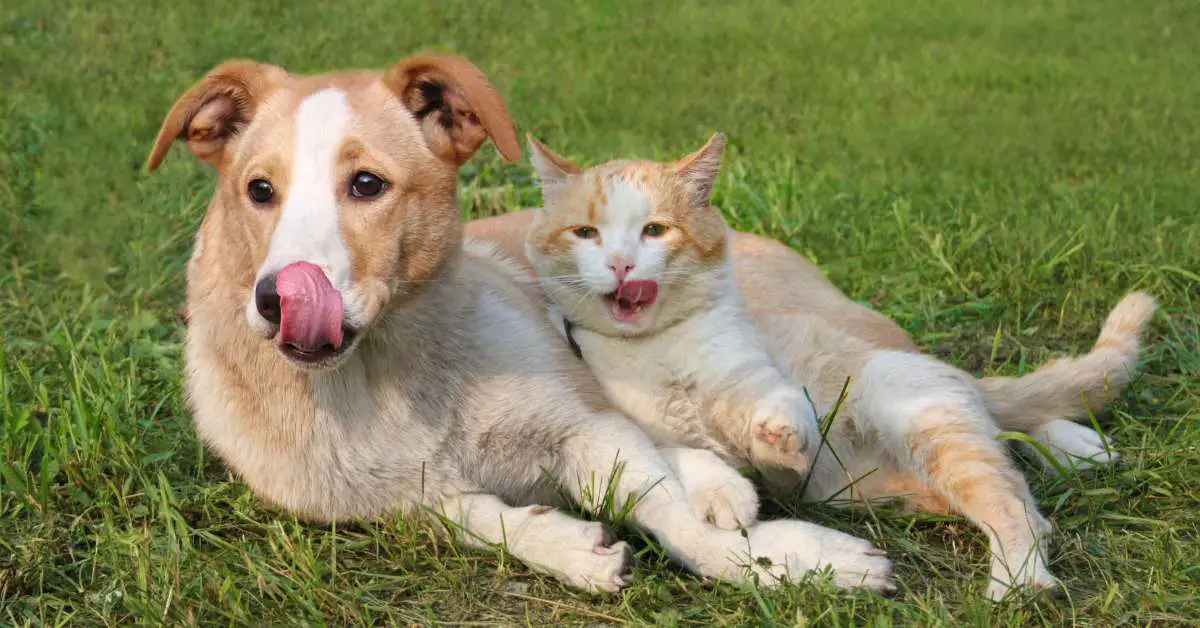
Dog owners frequently experience the following scenario: you are lounging on the couch, immersed in a book or your favorite television show, when all of a sudden, you feel a wet, sandpaper-like sensation on your hand or thigh.
You glance down, and there’s your furry companion, tirelessly licking away at your skin, the upholstery, or even the air. If you’ve ever wondered, “Why does my dog lick everything?” you’re not alone.
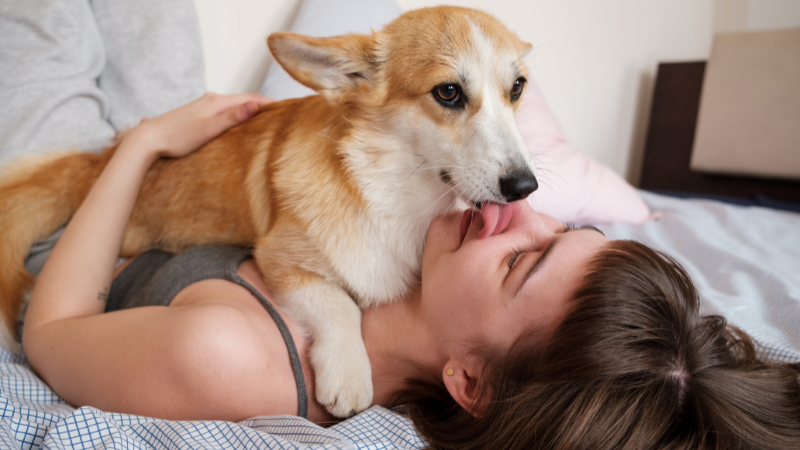
Let’s dive into this curious dog’s behavior and uncover the reasons behind it.
Generally, there are 2 main types of causes for excessive dog licking.
- Behavioral Causes
- Medical Causes
Let’s discuss both of them in detail.
Behavioral Reasons/Causes of Dog Licking
Affection
Imagine licking as a dog kiss. Dogs give you gentle licks as a sign of affection for being a part of their pack, which includes you.
They do it to show how much they care and how much they love you. In other words, when your animal companion gives you plenty of slobbery kisses, it’s their cute way of saying, “I care about you.”
Additionally, licking releases endorphins in dogs, which also enhances love and affection towards pet parents.
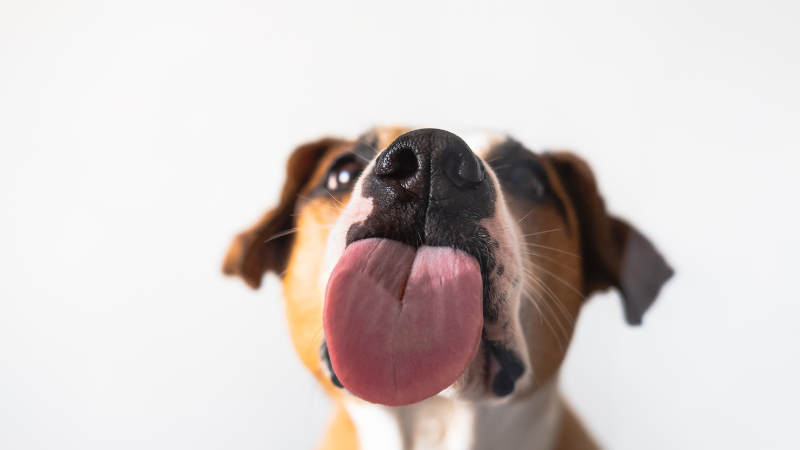
Instinct
Licking is a fundamentally instinctive behavior of dogs. Through their senses, puppies learn about their surroundings; licking is one way they do this.
It is a normal step for them to take, as this urge frequently lasts into maturity.
Anxiety (Separation Anxiety)
For anxious dogs, licking can be a self-soothing action. Endorphins are released, and these chemicals can soothe them. If your dog licks everything excessively when under stress, it may be a coping mechanism.
Hunger
Dogs have keen senses of smell and can detect even the smallest aromas of food and water bowls. If they detect a scent they like, they could begin to lick in an effort to find pleasant food.
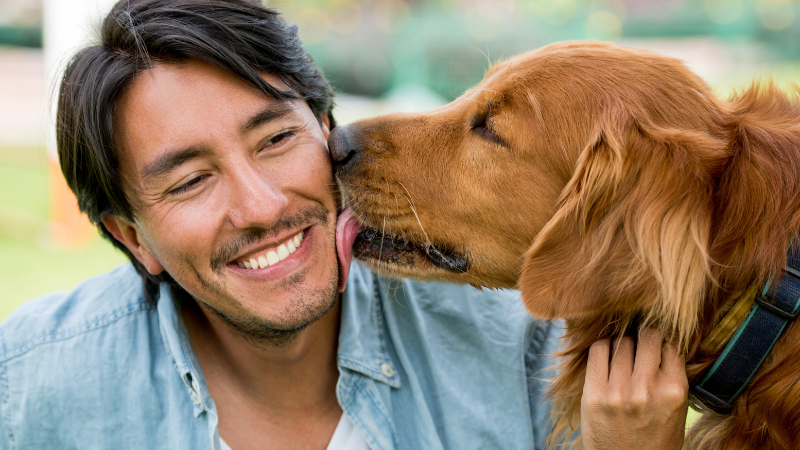
Boredom
Dogs may turn to licking, just as people may chew their fingernails or tap their fingers when they’re bored. Your dog may start licking to pass the time if they aren’t receiving enough mental or physical stimulation.
Attention
Dogs are intelligent animals, and they soon figure out what actions garner the attention they want. Your dog will learn to associate licking with affection if you pet, snuggle, or even just smile in response to them.
They start to believe that licking is a surefire way to win your attention.
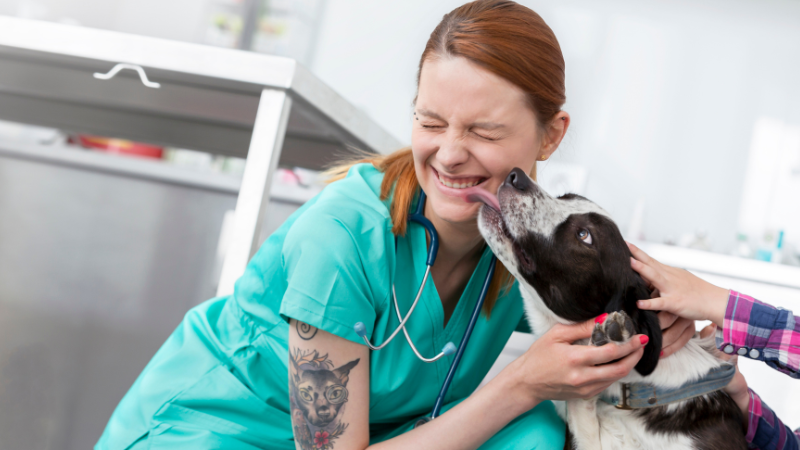
Medical Reasons/Causes of Dog Licking
Pica
Pica is an abnormal health condition in which dogs eat non-food items, including fabric, plastic, and other materials. As newborns use their mouths to explore and engage with their surroundings, it may result in excessive licking. This condition is also not covered by pet insurance companies, and it is usually curable with oral medications. Also, the occurrence of Pica in older dogs is way higher than in adult dogs (as observed by many animal behaviorists).
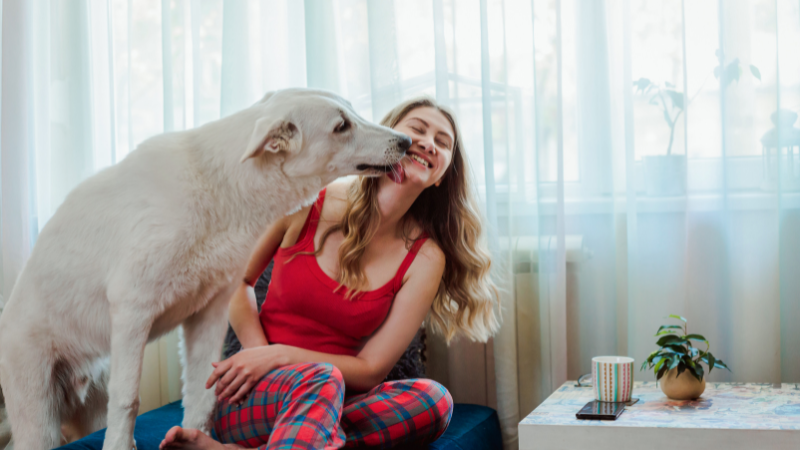
Sometimes gastrointestinal upset can also lead to excessive licking. Here you can study how Gastrointestinal disorders in dogs lead to excessive licking of surfaces in detail.
Dental Disease
When dogs are in pain or uncomfortable from their teeth or any underlying health issue related to gums, they frequently turn to licking. Eating can be difficult for some people due to oral health issues, and licking may be a way for them to try to feel better.
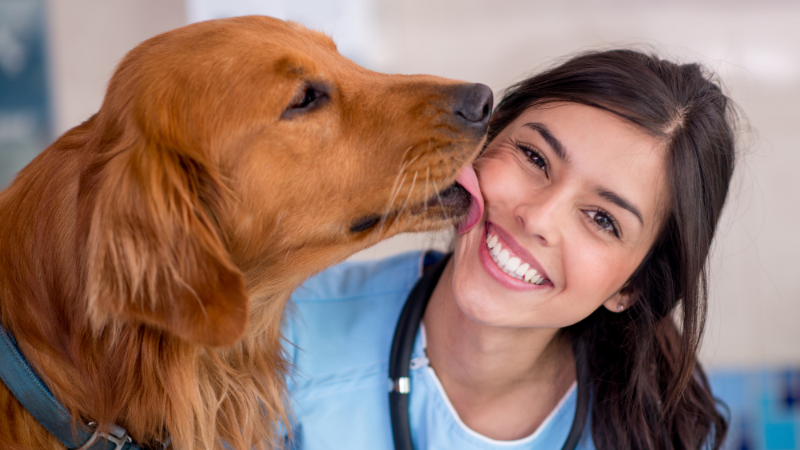
Hot Spots
Cognitive dysfunction, which is similar to dementia in humans, can occur in senior dogs. In dogs who have cognitive problems, licking can turn into a habit that they find difficult to break.
Obsessive-Compulsive Disorder
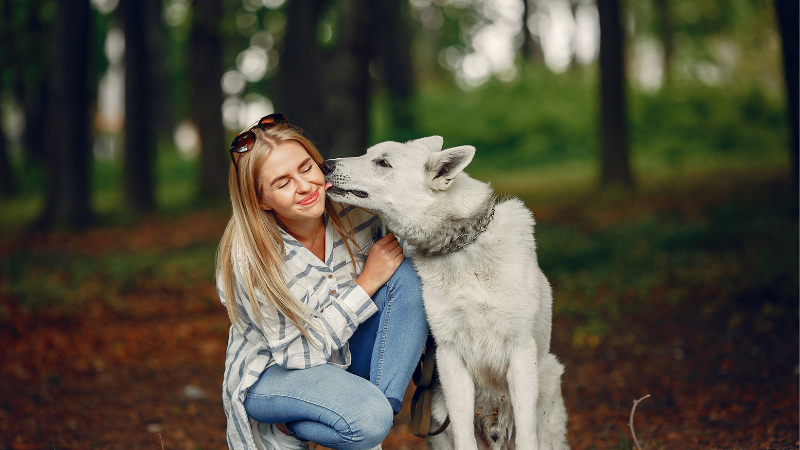
Skin Allergies
Dogs can exhibit obsessive-compulsive behaviors much like humans do. This may show a dog’s excessive licking itself, and intervention may be necessary to change their behavior.
Your dog may have a skin allergy if it suddenly begins licking their paws, legs, or other body parts excessively. They could lick to relieve itchy skin if it makes them uncomfortable.
When Should Dog Licking Be Worried About?
Even though the occasional licking is typically considered to be normal behavior, there are times when it may indicate a deeper issue.
A trip to the vet is necessary if your dog starts to lick compulsively, causes hair loss or skin irritation, or if they are also throwing up or having diarrhea.
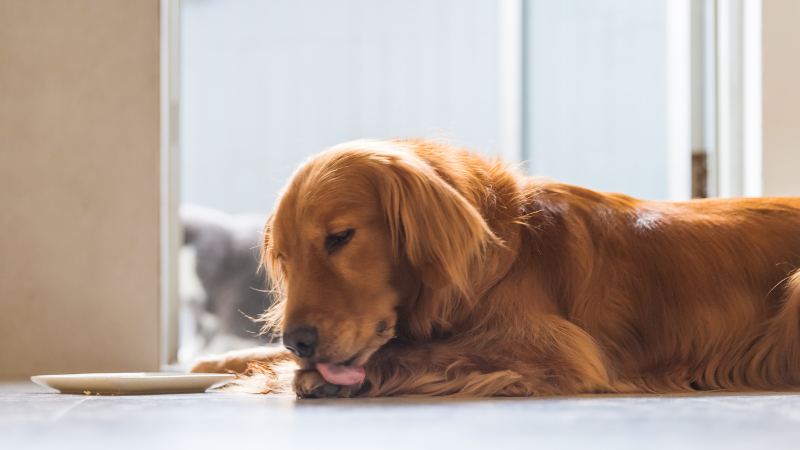
Correcting Licking Behavior: A How-To Guide
There are steps you may do to address the behavior if your pet’s propensity for licking starts to get a little too much to handle:
- Positive reinforcement: Reward your dog for showing behaviors other than licking. They will be able to link these habits to advantageous results as a result.
- Consult a Professional: Consult your dog’s veterinarian or a professional dog trainer for advice if its licking is upsetting or hurting your new pet. They also suggest a good treatment plan for your pup.
- Provide Enrichment: To prevent boredom, keep your dog mentally occupied with puzzle toys, engaging games, and regular exercise.
- Offer Distractions: To get your dog to stop licking undesirable objects, give them appropriate chew toys or treats.
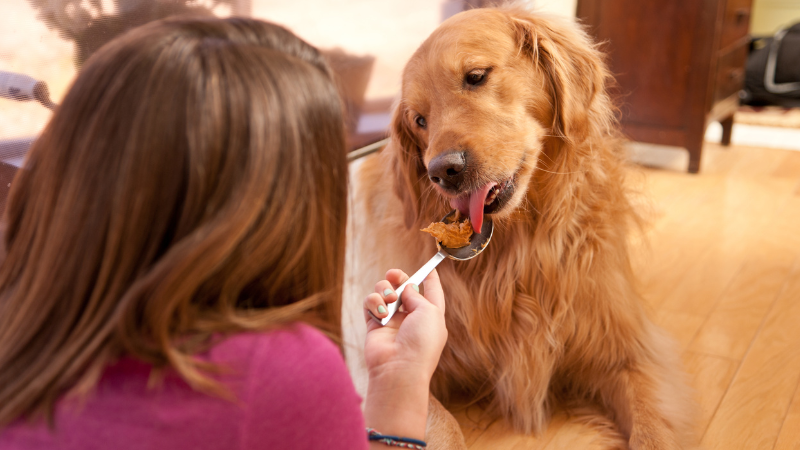
FAQs
Is it normal for my dog to lick me all the time?
Licking is a common way for dogs to communicate their love and appreciation for their owners.
Licking is a natural action that originates from their innate communication patterns and their desire to form a link with the human companions they share their lives.
However, the level to which something is considered “normal” might change from dog to dog, just as it can from person to person. Some dogs enjoy licking more than others, but all of them do it.
It is completely fine to redirect their behavior using positive training strategies if it gets to the point that it is overwhelming or annoying. Even while the occasional licking is innocuous and can even be cute, it is not acceptable for them to lick constantly.
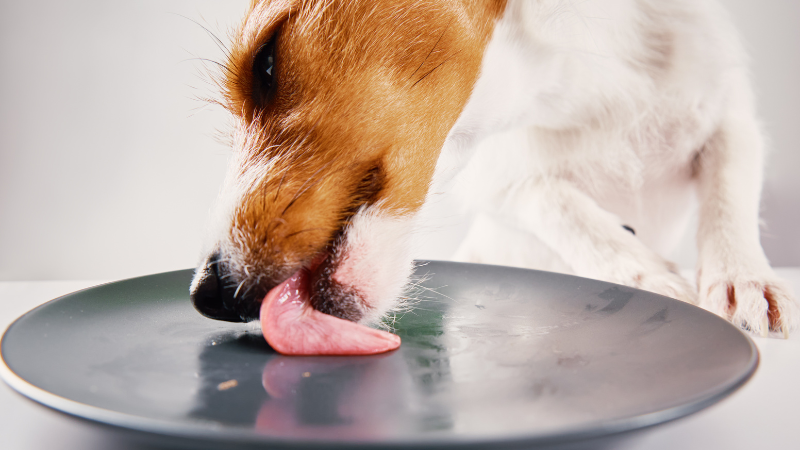
Should I be worried if my dog licks their paws constantly?
Licking of the paws that occur frequently and persistently can be cause for concern. Dogs lick everything including their paws is a fairly attention-seeking behavior; however, if the licking is excessive or continues for an extended period, it may point to a more serious problem.
It could be brought on by anxiety, among other things, allergies, skin irritations, infections, or even infections.
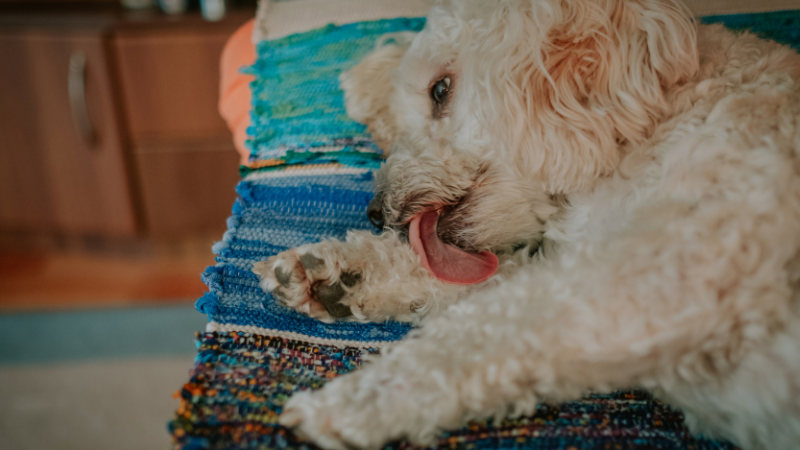
It is highly recommended that you seek the advice of your dog’s veterinarian if you observe any redness, swelling, or sores on your dog’s paws, or if they appear to be unhappy or in pain.
They are able to establish whether the licking is a response to a medical problem that requires treatment or whether it might be a behavioral issue that needs care. Either way, they are able to determine the cause of the dog’s licking behavior.
Excessive dogs lick to their pet parents (pet lovers) is also not good for human skin. It may lead to skin infections and some other issues if not cared for properly.
Here you can study the truth about “Dangerous dogs lick things! – A rare case of epidural abscess secondary to Capnocytophaga”.
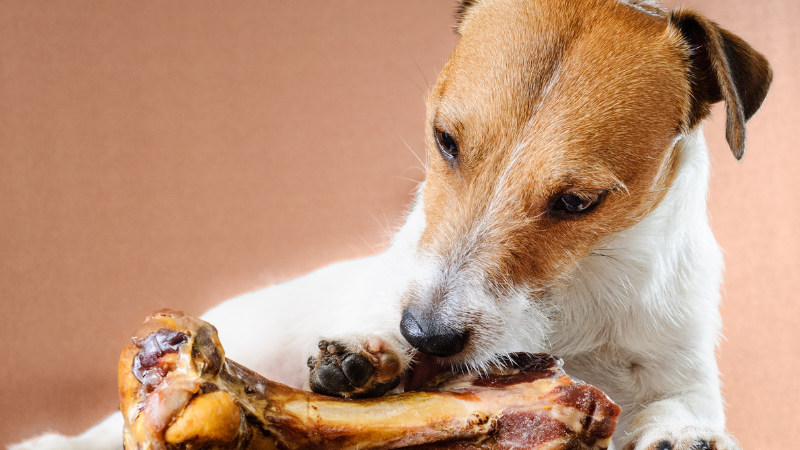
Can I use bitter sprays to stop my dog from licking furniture?
Bitter sprays have the potential to be an effective tool for discouraging dogs from licking excessively on furniture and other items, but it is possible that they are not a sufficient answer on their own.
Sprays that contain bitter ingredients provide an unpleasant taste for dogs, which may stop them from continuing the undesirable activity.
However, it is essential to keep in mind that resolving the underlying problem that is causing the licking is also of equal importance.
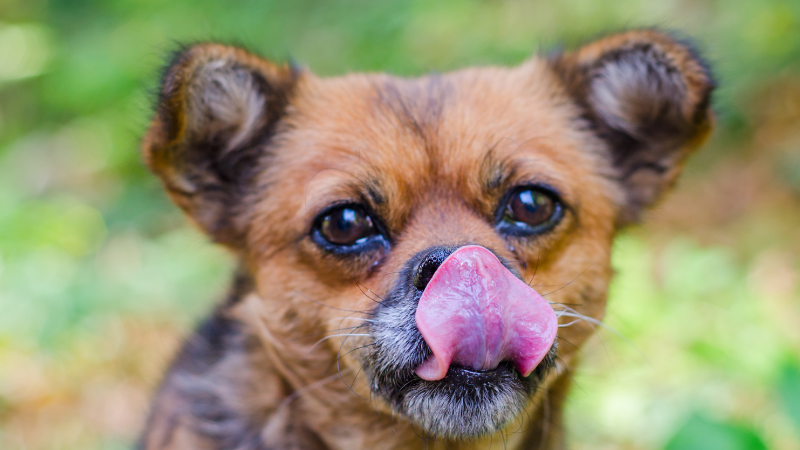
If your dog is licking the furniture due to boredom, nervousness, or a lack of appropriate outlets for their energy, you will get better results by combining the use of bitter sprays with some positive reinforcement training for desired behaviors, offering toys that are engaging, and addressing any underlying emotional needs that may be present.
However, remember the best dog stop licking method is the use of positive reinforcement training.
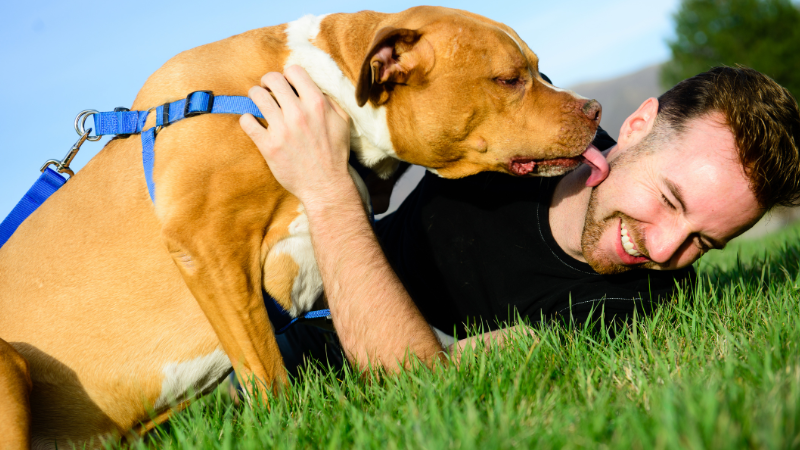
How do I differentiate between normal licking and compulsive licking?
It is possible to tell the difference between regular licking and compulsive licking by looking at a few crucial features.
Licking that is considered normal is typically infrequent, serves a specific goal, and does not interfere with daily life. It is commonly linked to demonstrations of affection, the act of grooming, or the pursuit of knowledge.
On the other hand, compulsive licking is characterized by recurrent and intense behavior, and it is associated with a higher risk of unfavorable outcomes such as skin irritation and hair loss.
If your dog’s licking activity becomes obsessive to the point where it interferes with their ability to participate in other activities and causes them physical injury, you may have a compulsive behavior on your hands.
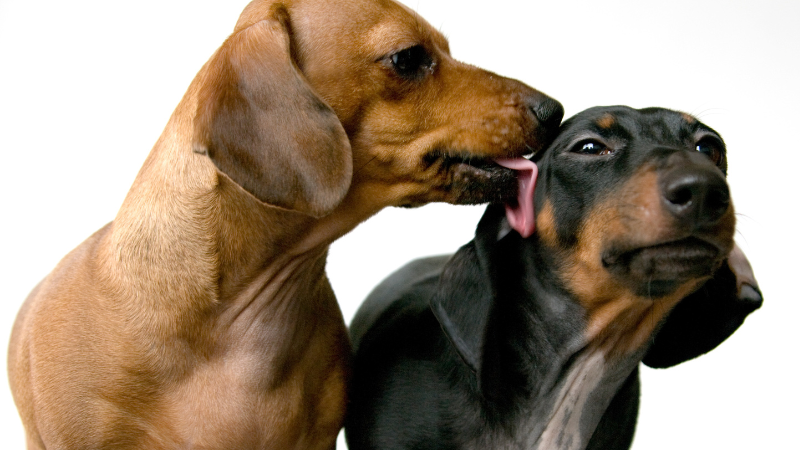
Final Remarks
To summarize, the question, “Why does my dog lick everything?” can be answered with a variety of reasons, ranging from the dog’s natural tendencies to the possibility of health problems.
You may ensure a healthier and happier relationship with your four-legged partner by first understanding the factors contributing to this behavior and then adopting the proper actions.
Therefore, the next time your dog gives you slobbery kisses all over your face, you will better understand what could possibly be going on in their furry mind.
